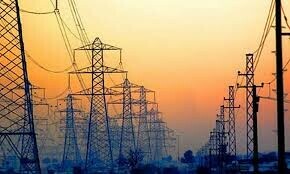MOSCOW: The sharp decline in Russia’s economy may have almost run its course, official data showed on Tuesday, slowed by a huge devaluation of the rouble and heavy government spending on anti-crisis measures.
Recovery prospects are cloudy, however, with many analysts warning of a sluggish rebound at best.
The economy has slumped as a result of Western sanctions linked to the Ukraine conflict and last year’s collapse in the price of oil. But the decline now appears to be arrested.
While gross domestic product continued to decline in year-on-year terms in June — down 4.2 per cent compared with 4.8pc in May — seasonally-adjusted output fell just 0.1pc month-on-month.
The figure tallies with other recent data, leading analysts to conclude the decline is close to a bottom - a silver lining to data which still show most macroeconomic indicators sharply down compared with a year earlier.
“It is kind of premature to speak about the recovery in sequential terms, which actually lies ahead,” said Alexander Isakov, economist at VTB Capital in Moscow.
“But in terms of year-on-year comparisons — the headline figure that everybody focuses on — we are bottoming out.”
DIVERGENT VIEWS: Uncertainty about the pace of any recovery is reflected in official forecasts, which present sharply divergent views.
The Economy Ministry predicts the economy will grow by 2.3pc next year after a 2.8pc decline this year. In contrast, Russia’s central bank sees the economy growing by only 0.7pc next year after declining 3.2pc this year.
Economists polled by Reuters expect 0.5pc growth next year after a 3.5pc contraction this year.
Optimists emphasise the huge boost to competitiveness caused by the devaluation of the rouble, which has declined by 40pc against the dollar over the last year.
While the initial impact of the rouble decline was to boost inflation, cutting into consumer spending, there is little sign of it becoming entrenched through higher wages. Nominal wage growth – 7pc in June — has been running at less than half the headline inflation rate of 15.3pc.
The resulting cut in labour costs means that these are now comparable to China’s, analysts at Renaissance Capital say, boding well for competitiveness.
Published in Dawn, July 29th, 2015
On a mobile phone? Get the Dawn Mobile App: Apple Store | Google Play













































Dear visitor, the comments section is undergoing an overhaul and will return soon.